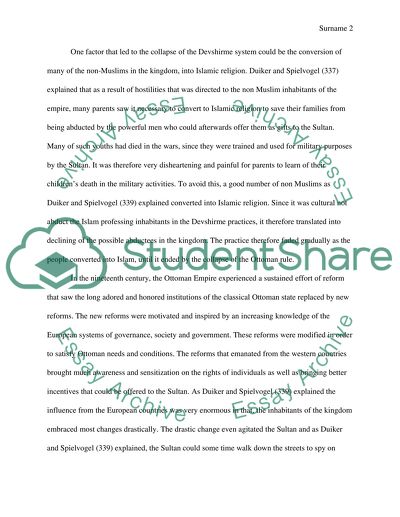Cite this document
(“Causes of the decline of the Devirme System Term Paper”, n.d.)
Causes of the decline of the Devirme System Term Paper. Retrieved from https://studentshare.org/miscellaneous/1574750-causes-of-the-decline-of-the-devirme-system
Causes of the decline of the Devirme System Term Paper. Retrieved from https://studentshare.org/miscellaneous/1574750-causes-of-the-decline-of-the-devirme-system
(Causes of the Decline of the Devirme System Term Paper)
Causes of the Decline of the Devirme System Term Paper. https://studentshare.org/miscellaneous/1574750-causes-of-the-decline-of-the-devirme-system.
Causes of the Decline of the Devirme System Term Paper. https://studentshare.org/miscellaneous/1574750-causes-of-the-decline-of-the-devirme-system.
“Causes of the Decline of the Devirme System Term Paper”, n.d. https://studentshare.org/miscellaneous/1574750-causes-of-the-decline-of-the-devirme-system.


